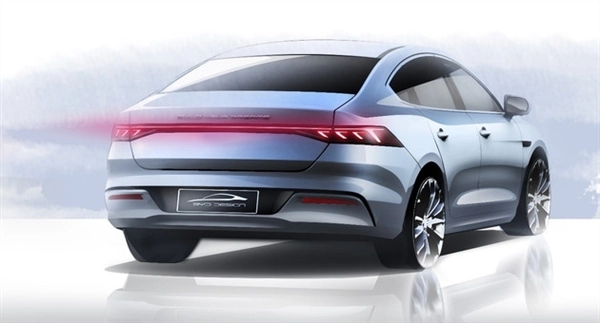
In October, Nio (NYSE: NIO) announced that it had delivered 5,055 of its three models, a new sales high since the company's inception. Unfortunately, all of these cars are powered by the lithium-ion ternary batteries from CATL, China's largest automotive lithium-ion battery maker.
This is contrary to BYD chairman Wang Chuanfu's claim that lithium-ion batteries are unsafe.
Nio chairman and CEO William Li Bin said proudly when the 100kWh upgrade was announced on November 6 that, given that Tesla's main model is the Model 3, the average price of each car is lower than the Nio's by about 150,000 yuan.
As Nio sales gradually get stronger in the second half of this year, Nio has a chance to overtake Tesla's performance in China and become a strong competitor if measured by sales revenue.
In the past, it has been BYD that has been competing with Tesla for the No. 1 position in electric vehicles.
In fact, compared with Tesla and Nio, BYD is not a pure new energy vehicle company, and its fuel vehicles accounted for 57.63% of its sales in the first 10 months of this year, more than its new energy vehicle sales.
In August this year, Nio and CATL and other joint ventures set up a battery asset management company, making the world's leading "battery swap" model in China began to really run.
But BYD has doubts about the battery swap model, and Wang Chuanfu has publicly said, battery swap model there are "convenience, security, cleanliness" three major problems.
In the recent November 6, Nio released its 100kWh battery upgrade plan, announcing that it had achieved its 2015 goal of "body and battery separation, battery rental, rechargeable, battery swap, upgradeable".
This means that the Nio-led "battery swap" model has entered a new stage, a market with a scale of hundreds of billions of dollars is slowly opening up, adding space to the growth of Nio and CATL.
In addition, according to Nio's new battery upgrade program, the range of the new ES8 can be up to 580 km, ES6 can be up to 610 km, EC6 is increased to 615 km.
This means that the ternary lithium battery power car camp represented by Nio will continue to comprehensively outperform the BYD blade battery represented by the lithium iron phosphate electric car camp in terms of range.
When announcing the 100kWh battery upgrade program on November 6, Li said that Nio is now a major CATL customer.
As a large customer of CATL, this also means that Nio came to the opposite side of BYD.
Nio's market capitalization once surpassed that of General Motors and is still ahead of world-famous auto conglomerates like BMW, according to data.
Despite Wang Chuanfu's claim that lithium-ion 3-D batteries are unsafe, no more Nio spontaneous combustion or fires have been reported since June 2019, when Nio recalled 4,803 ES8s for battery problems.
This means that Wang Chuanfu's "lithium ternary batteries are unsafe" claim doesn't hold up in the "Nio+CATL" combination. Also, the longer Nio takes this route, the more dangerous it will be for BYD itself.
Moreover, it is clear that CATL is not going to a standstill. In September, CATL announced at the 2020 World New Energy Vehicle Conference that it had developed the NCM811 battery, which only emits smoke but not fire.
In October, CATL reiterated this message at the "5th Power Battery Application International Summit (CBIS2020) & 1st China New Energy and New Materials (CATL) Summit", where Nio Chairman Li appeared as CATL's largest customer.
Nio's growth, coupled with CATL's technology iterations, and their dormant alliance, put BYD's bladed battery and BYD's own electric vehicle business increasingly in jeopardy.



